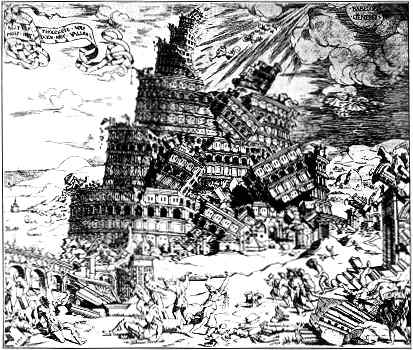
ALG Editor’s Note: As ALG News has previously reported, and as brilliantly laid out in the following featured commentary, overleveraging by individuals, financial institutions, and government has been a catastrophe for the American economy:
The United States Of Ponzi
 By Nouriel Roubini
By Nouriel Roubini
A reporter contacted me recently with the following question:
“I am a reporter, and I am doing a story on Bernard Madoff’s life after pleading guilty. As part of this, I was wondering if you could comment on what significance he will have in the history of this period. Will he represent more than a scamster who stole a lot of money from a lot of people? As Bernie Ebbers and Ken Lay came to embody corporate greed and deceit, what will Madoff symbolize?”
Here is my answer fleshed out in full:
Americans lived in a “Made-off” and Ponzi bubble economy for a decade or even longer. Madoff is the mirror of the American economy and of its over-leveraged agents: a house of cards of leverage over leverage by households, financial firms and corporations that has now collapsed in a heap.
When you put zero down on your home, and you thus have no equity in your home, your leverage is literally infinite and you are playing a Ponzi game.
And the bank that lent you, with zero down, a NINJA (no income, no jobs and assets) liar loan that was interest-only for a while, with negative amortization and an initial teaser rate, was also playing a Ponzi game.
And private equity firms that did over a $1 trillion of leveraged buyouts (LBOs) in the last few years with a debt-to-earnings ratio of 10 or above were also Ponzi firms playing a Ponzi game.
A government that will issue trillions of dollars of new debt to pay for this severe recession and socialize private losses may risk becoming a Ponzi government if–in the medium term–it does not return to fiscal discipline and debt sustainability.
A country that has–for over 25 years–spent more than income and thus run an endless string of current account deficit–and has thus become the largest net foreign debtor in the world (with net foreign liabilities that are likely to be over $3 trillion by the end of this year)–is also a Ponzi country that may eventually default on its foreign debt if it does not, over time, tighten its belt and start running smaller current account deficits and actual trade surpluses.
Whenever you persistently consume more than your income year after year (a household with negative savings, a government with budget deficit, a firm or financial institution with persistent losses, a country with a current account deficit) you are playing a Ponzi game. In the jargon of formal economics, you are not satisfying your long-run inter-temporal budget constraint as you borrow to finance the interest rate on your previous debt, and are thus following an unsustainable debt dynamics that eventually leads to outright insolvency.
According to Hyman Minsky and economic theory, Ponzi agents (households, firms, banks) are those who need to borrow more to repay both principal and interest on their previous debt; i.e., Minsky’s “Ponzi borrowers” cannot service either interest or principal payments on their debts. They are called “Ponzi borrowers” as they need persistently increasing prices of the assets they invested in to keep on refinancing their debt obligations.
By this standard, U.S. households whose debt relative to income went from 65% 15 years ago, to 100% in 2000, to 135% today were playing a Ponzi game.
And an economy where the total debt to GDP ratio (of households, financial firms and corporations) is now 350% is a Made-Off Ponzi economy. And now that home values have fallen 20% (and they will fall another 20% before they bottom out) and equity prices have fallen over 50% (and may fall further), using homes as an ATM to finance Ponzi consumption is not feasible any more. The party is over for households, banks and non-bank highly leveraged corporations.
The bursting of the housing bubble, the equity bubble, the hedge funds bubble and the private equity bubble showed that most of the “wealth” that supported the massive leverage and overspending of agents in the economy was a fake bubble-driven wealth. Now that these bubble have burst, it is clear that the emperor had no clothes, and that we are the naked emperor. A rising bubble tide was hiding the fact that most Americans and their banks were swimming naked; and the bursting of the bubble is the low tide that shows who was naked.
Madoff may now spend the rest of his life in prison. U.S. households, financial and non-financial firms, and government may spend the next generation in debtor’s prison having to tighten their belts to pay for the losses inflicted by a decade or more of reckless leverage, over-consumption and risk-taking.
Americans, let us look at ourselves in the mirror: Madoff is us and Mr. Ponzi is us!
Nouriel Roubini, a professor at the Stern Business School at New York University and chairman of Roubini Global Economics, is a weekly columnist for Forbes.com.

